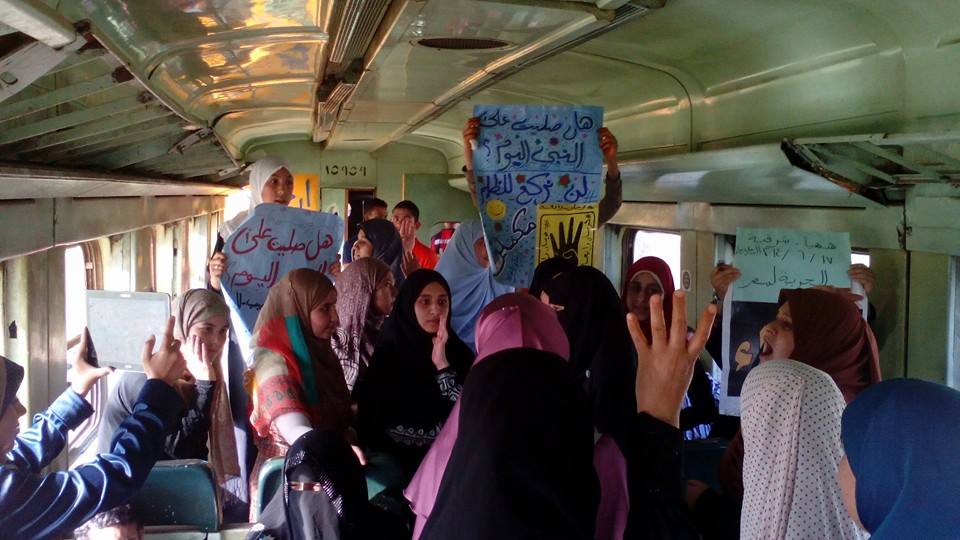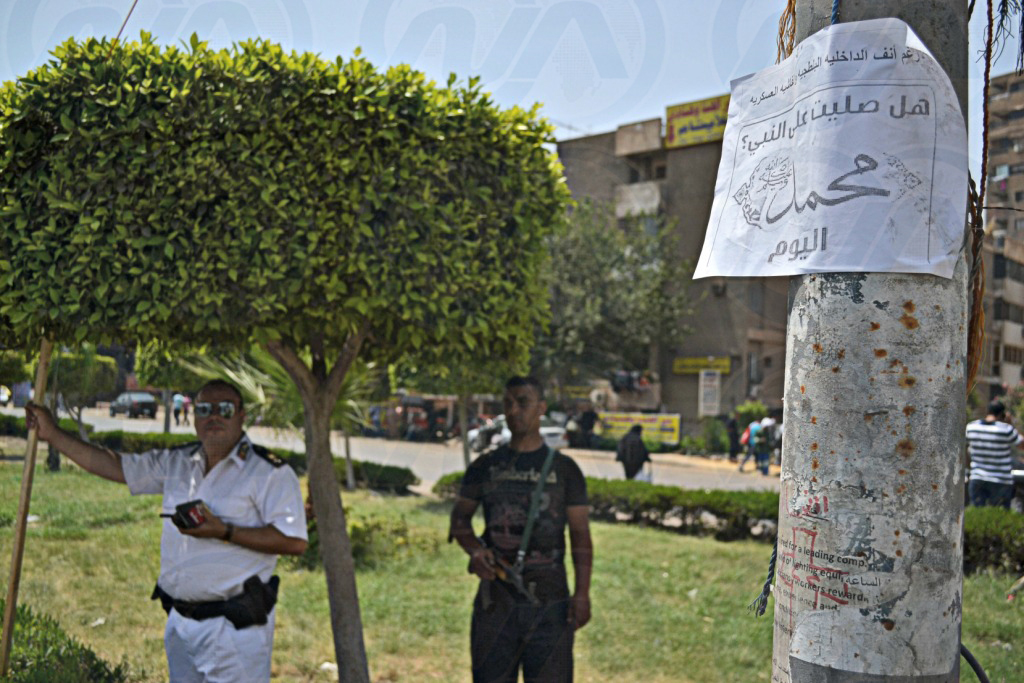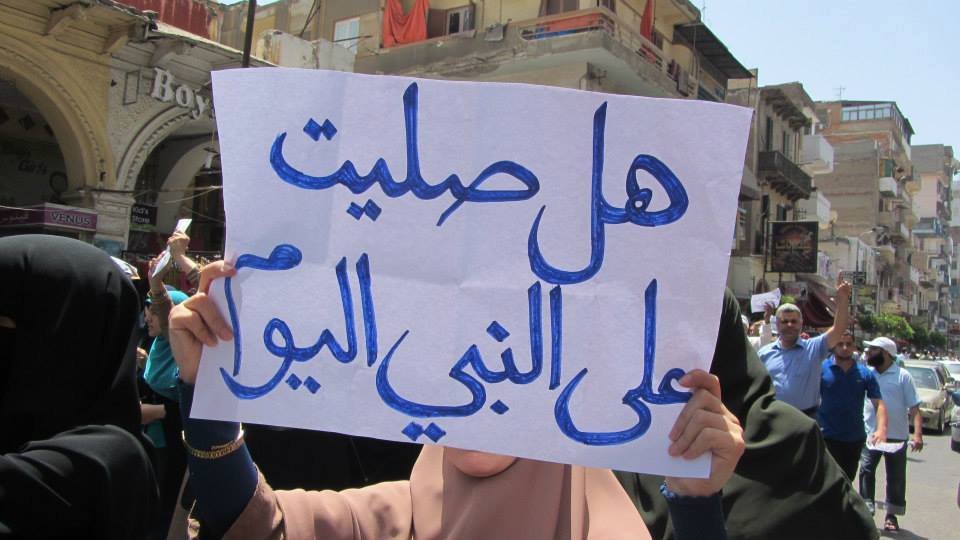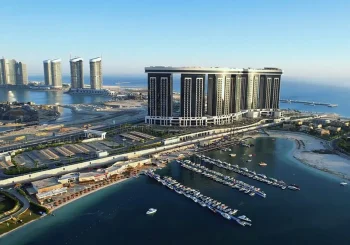You can find it anywhere, on the back of cars, buses, and micro-buses, on the walls of shops, on the fences of schools, on bags and t-shirts, on the cubicles of your colleagues at work, on TV channels, and last but not least, on the pages of social networks.
The simple sign that bears the question asking you to pray upon the prophet of Islam may still not be as numerous as the news about it may sound (or the few lines above may imply), but it will surely appear to you in many places in Egypt, not only raising your eyebrow about its unexpected significance, but also striking you with its remarkable constancy.
In Islam, the act of praying upon the prophet simply means reciting a few lines asking God to bless Muhammad and his people just as he blessed Abraham and his people. It is based upon the second half of what is known as Tashahhud, which is the closing part of the Muslim prayer. In the Quran there’s a verse which says (according to Yusuf Ali’s translation): “Allah and His angels send blessings on the Prophet: O ye that believe! Send ye blessings on him, and salute him with all respect.”
This along with other sayings of the prophet asking believers to pray upon Muhammad whenever his name is mentioned are the basis of this popular campaign that has seemingly offended many seculars and Christians, leading the government to announce a ban on showing this sign. But why should anyone be offended with such a peaceful message?
To attempt answering this question, one should look further into the context. Religious signs are not a new thing in Egypt, and they usually are not intended to be as harmless as they look. In a trip using Cairo’s underground, one can read a plethora of religious dogmatic signs admonishing those who don’t pray, criticizing women who don’t cover their heads, and linking many life problems to the lack of religiousness (a very popular sign states that “high prices will never go down unless women wear the Hijab” for example).
And it’s not only signs and fliers, as some hardliners take it upon themselves to spread the word either through lecturing the people in public places or intimidating them with semi-private talks, not to mention spreading booklets and other forms of propaganda. While all this may sound harmless and peaceful, so does Big Brother’s portrait which keeps looking at you all the time.
This may explain why some may feel their toes stepped upon when they see such a sign, but then comes the issue of freedom of expression. After all, there’s nothing harmful about the act of prayer per se. Also, there’s no point whatsoever in hunting down this particular sign while leaving others that are really offending, whether religious or not. It is even more ironic when one knows that the government uses religious propaganda whenever it feels beneficial. A slogan that is divisive is not an excuse for censorship, because otherwise all opinions should be banned.

On social networks, the division stirred by the sign is much more evident than anywhere else. The staunch supporters belong to the religious block of the population, many of them supporters of the former president and the Muslims Brotherhood – perhaps that’s why the government stated a preference to ban the sign. Those who are against the sign are more inclined to the secular side, but they are not liberals and many of them are supporters of the current regime.
In the middle, lie the liberal-minded, mostly against the sign but also against censorship. For those, it is more complicated to take a clear stand, especially because of many complexities including the hypocrisy of many supporters who would not accept a similar Christian sign for instance, or that of the opponents who relentlessly support the government’s oppression while get offended by a few words.
Despite all of this, the numbers of the “Have you prayed upon the prophet today?” sign are on the rise. Recently, it has been made into t-shirts and other forms as campaigners on social networks and beyond call for more support in defiance to the government’s decision. Just like any other meme, the level of endorsement is increasing quickly as the sign becomes viral. But also just as all memes, it will eventually fade away shortly after reaching its peak, perhaps leaving its place for something else equally banal and equally controversial.

In a country like Egypt where dogma plays a big role in the society’s culture, just speaking against such signs may sound blasphemous to many people. This intimidating environment may drive many people to take a defensive stance and side with the banning efforts. Yet, there’s maybe a silver lining for liberals in sticking to their free speech principles and maintaining their opposition to censorship.
There’s an Egyptian proverb which says “whatever exceeds its threshold will turn out to be self-defeating.” There’s nothing more liberating for the mind than the breaking the old molds of dogma, and that will not be achieved except by the help of hardliners and conservatives through their insistence on holding fiercely to, and focusing extensively on, the unpractical, just as is evident in the spread of these signs. The keyword here is platitude.






Comments (0)